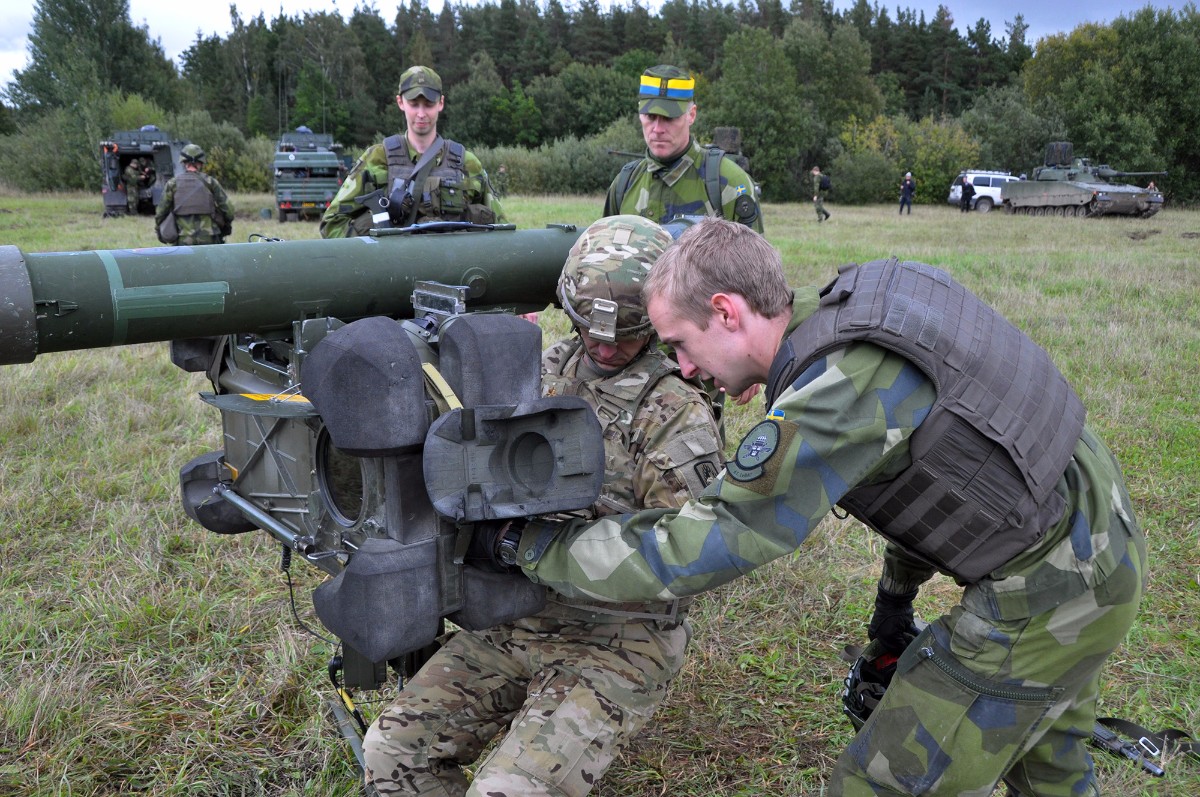 Photo Credit: Swedish Armed Forces
Photo Credit: Swedish Armed Forces
As Russia Grows More Aggressive, Scandinavia Reasserts Itself
Russia and Belarus were not the only ones engaging in wargames on the Baltic Sea this month. While Zapad-2017 was putting NATO on edge, Sweden quietly prepared for its largest military drills in over twenty years— with the United States and multiple NATO allies also participating. These wargames, titled “Aurora-17”, are part of a larger strategy by Sweden and other states in Scandinavia to strengthen national security in the face of growing Russian aggression.
The Scandinavian nations are no stranger to tensions with Russia, having dealt with historical threats from both the Tsars and the Soviets. It was the threat of the Soviet Union that led Denmark and Norway into NATO following World War II, and Finland and Sweden to maintain policies of armed neutrality throughout the Cold War— backed up by large standing armies.
Scandinavia’s vigilance began to ease after the end of the Cold war. The threat to the region by a weakened Russia was seen as minimal, and defense budgets and militaries shrank. Sweden, once able to mobilize over 600,000 troops, decreased its active military to 20,000 and lowered defense spending to just over 1% of GDP. Finland also made cuts to its military, slashing troop levels by over 100,000 in 2012, with its 2016 defense budget amounting to less than 2% of GDP.
This situation began to change as Russia assumed a more aggressive attitude throughout Europe, including towards Scandinavia. Russia has repeated the same aggressive military actions that it has taken on the opposite side of the Baltic Sea, violating airspace and territorial waters. Four years ago, in a highly provocative move, the Russian military even launched a simulated nuclear attack against Sweden.
The Scandinavian nations have taken Russia’s actions— and the potential threat to their security —seriously. Both Sweden and NATO member Norway have moved to increase defense budgets. Sweden has reintroduced conscription just seven years after abolishing it, and redeployed troops to the strategic island of Gotland after previously demilitarizing it. Finland also announced it would be increasing the size of its military, reversing some of its 2012 personnel cuts. In its 2017 Defense Policy, Finland made it clear what threats are pushing it to strengthen its defenses, pointing directly to Russian occupation of Crimea and destabilization in the Baltic Sea as its prime concerns.
The growing unease in Scandinavia had not gone unnoticed by the previous administration. President Obama hosted leaders from all five Nordic countries in May of 2016, with Russian aggression as a key topic. The six leaders issued a joint statement condemning Russia’s interference in Ukraine, and pledged to cooperate further on security issues. The United States followed through later that year by signing new agreements with Sweden and Finland to extend existing defense cooperation. Plans for the Aurora-17 exercise were also laid down that year.
Ironically, Russia’s aggressive actions have encouraged what it wants least: the neutral Nordic countries moving closer to the West. In addition to official agreements, public opinion in both Finland and Sweden has grown in favor of joining NATO in recent years. A recent Pew survey in Sweden found 47% of the country in favor of joining NATO, with 39% against (55% of Finns are still opposed to joining the alliance, though far more are now undecided). Russia has responded by issuing warnings that if Sweden and Finland were to join NATO, there could be “dangerous” consequences for the Baltic Sea region.
Russia may make threats, but compared to other regions that the United States has made commitments to, Scandinavia is vital both strategically and morally. Strategically, Scandinavia is NATO’s northern flank, which if occupied would leave the heart of Europe vulnerable. Morally — with its countries upheld as stable, prosperous, liberal democracies with free societies in an era of global chaos and conflict —the United States shares so much in common with Scandinavia that if it failed to support and protect it, it would be failing its own values.
Secretary of Defense James Mattis reinforced this after meeting with Sweden’s Defense Minister earlier this year, pledging that “America will not abandon democratic allies and partners. And we will stand with Sweden, and all democracies will stand together.” President Trump should echo these statements and uphold and expand the outreach to Scandinavia started by President Obama. Participation in Aurora-17 is a start, but in a time where Russia strives to act on any weakness it sees, it is critical to consistently and vocally support essential US allies when those allies are potentially vulnerable.






